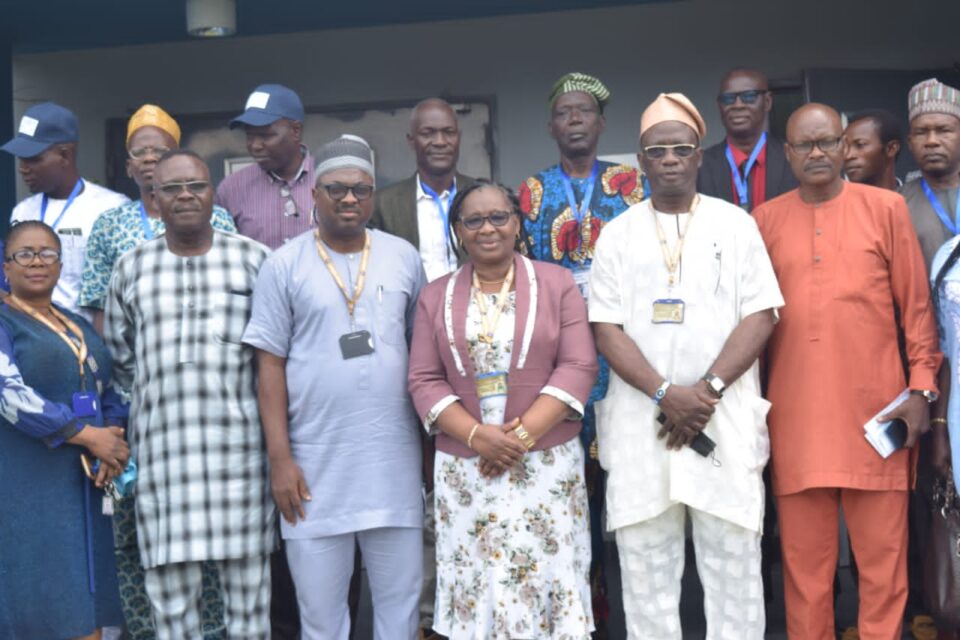Stakeholders from the Fishing industry across the world have advocated the immediate implementation of the Small Scale Fisheries Guidelines in order to effectively tackle food insecurity in Nigeria.
The position was taken at the Opening Ceremony of the 3-day National Staleholders’ and Advocacy Capacity Building Workshop on Small-Scale Fisheries Guidelines organised by the Faculty of Science, Lagos State University in conjunction with the Food and Agricultural Organisation and International Collective in Support of Fishworkers.
The hybrid programme held at the Aderemi Makanjuola Lecture Theatre, Main Campus, Ojo with other participants joining virtually from across the globe.
Senior Special Assistant to the President on Sustainable Development Goals, Her Excellency, Princess Adejoke Orelope-Adefulire, in her presentation titled “Beyond Awareness on the SSF-Guidelines: Partnership Towards Ensuring that Small-Scale Fisheries Deliver oj the Sustainable Development Goals” said the implementation of the SSF was critical to the achievement of the country’s SDGs and promised that the Agency will support relevant efforts at achieving the goals.
Other Experts who spoke on various aspects of the topic, Ms. Lena Westlund from the Food and Agricultural Organisation, Prof. Emeritus Svein Jentoft, from UIT the Arctic University of Norway, Dr. Zakariya Mohammed from the Office of the Special Assistant to the President of SDGs , Dr. Kendra Byrd from the University of Greenwich Natural Institute Mr. Lucas Koyejo from the National Human Rights Commission and Prof. Olatoye Kareem from the Faculty of Law, Lagos State University, where unanimous in their submissions that all stakeholders, from the national, regional and international communities need to work together to ensure the implementation of the SSF-guidelines to improve the lot of small scale fishers and ameliorate potential food crisis in the country. The opined that the country stand to benefit greatly, in the event of the implementation of the guidelines which had been adopted as far back as 2014.
Earlier in the programme, the Vice Chancellor, Prof. Ibiyemi Olatunji-Bello, mni, while declaring the 3day Workshop open, noted that apart from fish production, the small-scale fisheries are firmly rooted in local communities, sustaining rich tradition and value system in many fishing communities and villages across the country, adding that “directly, the sub-sector provides livelihood for about two million people and as secondary source of employment for up to 20 million people.” Prof. Olatunji-Bello, who was ably represented by Deputy Vice Chancellor, Administration, Prof. Adenike Boyo, pledged the commitment of her administration to collaborative efforts such as the workshop that would ensure the speedy implementing of the SSF Guidelines.
In his submissions, the Host of the programme and Dean, Faculty of Science, Prof. Shehu Akintola, explained that the need for implementation of the SSF Guidelines was an urgent one because it has as its heart, protection of human rights, attainment of sustainable development goals and sustainable fishing management, requiring the cooperation and input of all stakeholders. He added that the participants were carefully selected from different stakeholders to ensure that the goal of inclusion was achieved.
It is instructive to note that the SSF-Guidelines are designed to support the visibility, recognition and enhancement of the already important role of small-scale fisheries and to contribute to global and national efforts towards the eradication of hunger and poverty.
The programme is expected to come to an end on Wednesday, 11th May, 2022.



